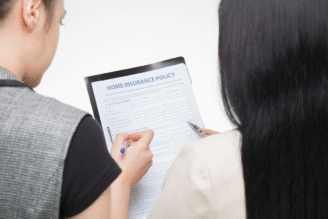Renters insurance: what is it, how does it work and why should you have it?
Learn why renters insurance is essential for protecting your belongings, avoiding unexpected costs, and gaining peace of mind.
Why You Need to Know About Renters Insurance

If you rent a house or apartment in the United States, you may have heard of renter’s insurance. It may seem like just another expense at the end of the month, but the truth is that this type of insurance can save you from major headaches (and money).
But how does this type of insurance work? In this post, we’ll explain exactly what it is, how it works, and why it’s worth considering having one. Let’s go!
What is renters insurance?
Renters insurance is a policy that protects you, your belongings, and even your legal liability in certain situations while you live in a rented property.
It’s different from landlord insurance, which covers the building structure. Renter’s insurance focuses on what’s inside, your stuff.
In short, this insurance can cover:
- Your personal belongings (like furniture, electronics, clothing, and appliances);
- Liability coverage (if someone gets injured at your home and sues you);
- Temporary housing costs (if you have to move out due to a covered disaster, like a fire).
How does renters insurance work?
It works much like other types of insurance. You choose a policy based on how much coverage you want and pay a monthly (or yearly) fee called a premium.
If something happens that’s covered under the policy, you file a claim, and the insurance company may reimburse you, minus your deductible.
For example: if you have a policy that covers $20,000 in belongings and someone breaks into your apartment and steals your $1,200 laptop, you can file a claim. If your deductible is $500, you would get $700 back.
What’s usually covered?
Each policy may vary a bit, but in general, renters insurance covers:
- Theft and vandalism;
- Fires and smoke;
- Water damage (like burst pipes);
- Falling objects;
- Explosions and some natural disasters.
Also, if someone gets injured at your place, like slipping and falling, and decides to sue, your insurance might cover legal and medical costs, depending on the plan.
And there’s more: if your apartment becomes unlivable because of a covered event, your insurance may pay for hotel and food expenses while you find a new place or wait for repairs. This is called loss of use.
Why is renters insurance worth it?
Now let’s get to the main point: why invest in this? Below, check out some important steps you need to consider!
1. It protects your belongings
A lot of people think they don’t own “anything valuable.” But think about it, how much would it cost to replace all your electronics, clothes, kitchen tools, furniture, and appliances? Probably more than you’d guess.
2. It’s affordable
This insurance is typically very budget-friendly. On average, it costs $10 to $25 per month, depending on the coverage and your location. A small price to avoid a major financial loss.
3. It gives you peace of mind
Knowing you’re covered if something unexpected happens helps you sleep better. No one wants unpleasant surprises when it comes to money or safety.
4. Your landlord might require it
Many landlords today require tenants to have renters insurance as a condition of the lease. It’s a way to make sure both sides are protected.
How to choose the right renters insurance?
Before signing up, it’s worth comparing a few options. Some tips, estimate the value of your personal belongings: this helps determine how much coverage you need.
Check the deductible: a lower deductible usually means a higher monthly premium and vice versa. Consider extra coverage for expensive items, like jewelry, bicycles, or high end electronics.
Check if it covers your belongings outside the home: some policies protect your stuff even when you’re not home (like during travel).
Renters insurance is a simple, inexpensive, and effective way to protect your everyday life. It doesn’t just cover your stuff, it also helps in situations that could become a real headache, like lawsuits or property disasters.
If you rent your home, take a moment to assess your risks and consider getting a policy. After all, unexpected things happen, and it’s always better to be safe than sorry.






